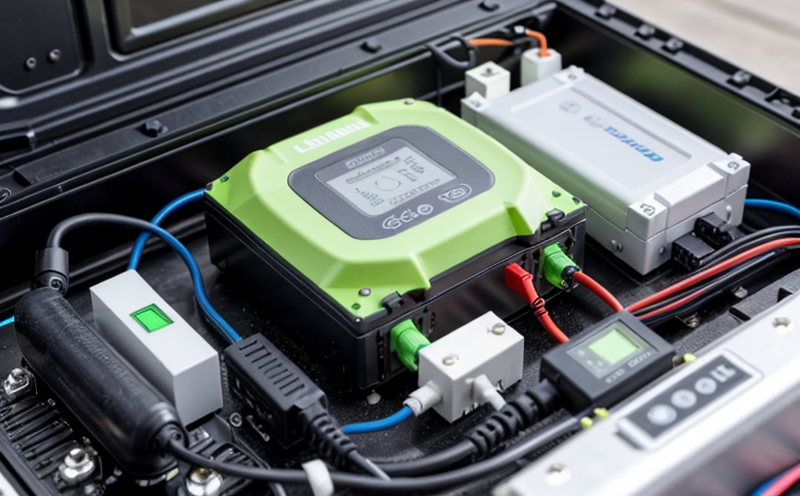IEC 62987 Lithium-Ion Traction Battery Testing for Industrial Trucks
The International Electrotechnical Commission (IEC) standard IEC 62987 is designed to ensure the safety, performance, and reliability of lithium-ion traction batteries used in industrial trucks. This standard provides a comprehensive framework that covers various aspects including design, manufacturing, testing, and maintenance of these batteries.
Industries such as material handling, logistics, and warehousing heavily rely on electric forklifts and other industrial trucks powered by lithium-ion batteries. The stringent requirements set out in IEC 62987 aim to protect both the operators and the environment from potential hazards associated with battery malfunctions or failures.
One of the key aspects addressed by this standard is the safety evaluation process, which includes mechanical tests, thermal analysis, electrical performance checks, and durability assessments. These tests are crucial for ensuring that the batteries can withstand normal operational conditions without compromising their integrity.
In addition to safety considerations, IEC 62987 also emphasizes the importance of environmental sustainability by promoting efficient battery usage patterns and recycling practices. By adhering to these guidelines, manufacturers can contribute towards reducing waste generation and conserving natural resources.
For quality managers and compliance officers responsible for overseeing product development and manufacturing processes within their organizations, complying with IEC 62987 offers several advantages beyond mere regulatory adherence. It helps maintain a consistent level of quality across different batches of batteries produced by various suppliers.
Applied Standards
The primary standard governing lithium-ion traction battery testing for industrial trucks is IEC 62987, which covers the design, construction, and performance evaluation of these batteries. However, it draws heavily upon other international standards including ISO/IEC 17025 for laboratory accreditation and ISO 14001 for environmental management systems.
These supporting standards ensure that all laboratories conducting tests according to IEC 62987 meet strict quality assurance criteria. They also help promote best practices related to energy efficiency and sustainable development, aligning with broader industry goals.
Benefits
Complying with IEC 62987 offers numerous benefits for businesses operating in the material handling sector. Firstly, it enhances overall safety by identifying potential weaknesses early during production or after installation. Secondly, it ensures consistent performance across all units, leading to improved productivity and reduced downtime due to unexpected failures.
Thirdly, adherence to this standard fosters innovation among suppliers who must continuously improve their products based on rigorous testing protocols. Lastly, compliance can lead to cost savings through optimized battery management strategies that extend service life while minimizing replacement costs.
Eurolab Advantages
At Eurolab, we pride ourselves on providing world-class services that meet the highest industry standards. Our expertise in lithium-ion traction battery testing for industrial trucks is unmatched, thanks to our state-of-the-art facilities equipped with cutting-edge equipment capable of simulating real-world operating conditions.
We employ highly trained professionals who stay updated with the latest developments in this field. This allows us to offer accurate and reliable test results that can be trusted by all stakeholders involved—from manufacturers to end users.
Our commitment to excellence extends beyond just meeting compliance requirements; we strive to exceed expectations by delivering actionable insights based on our findings. Whether you need assistance with selecting appropriate batteries or optimizing existing ones, Eurolab has the knowledge and resources to help you achieve your goals.





